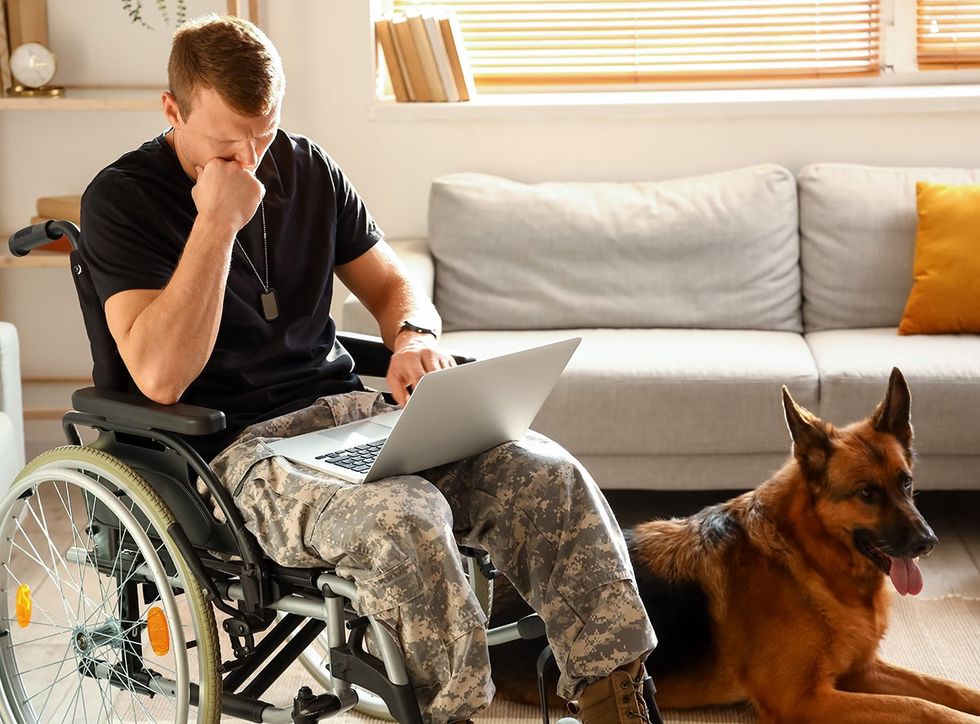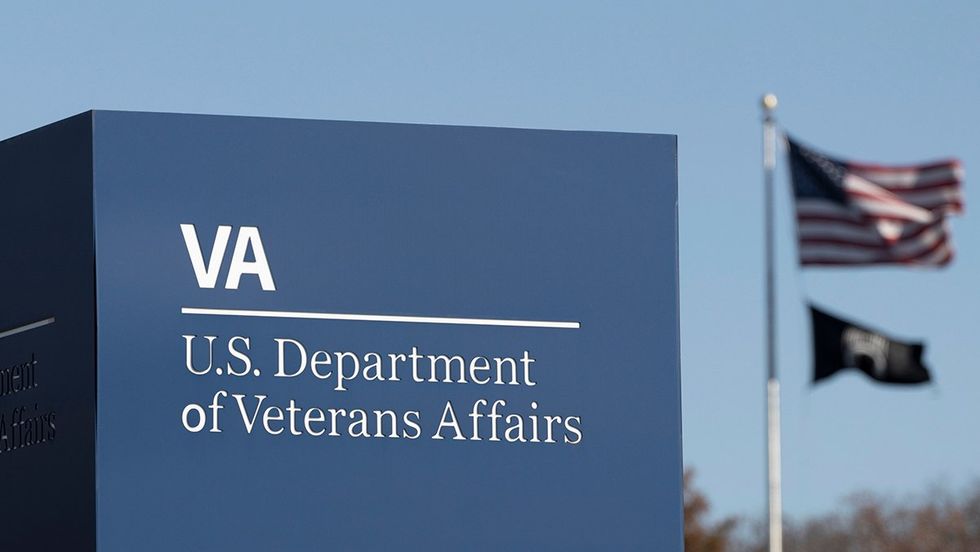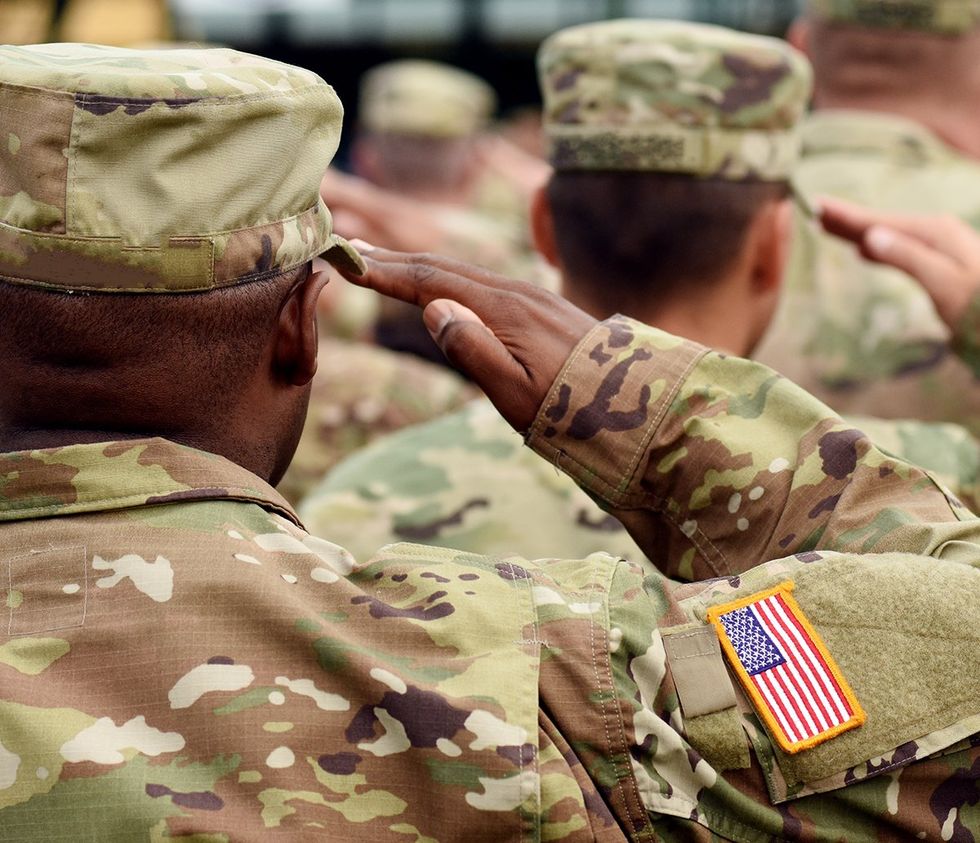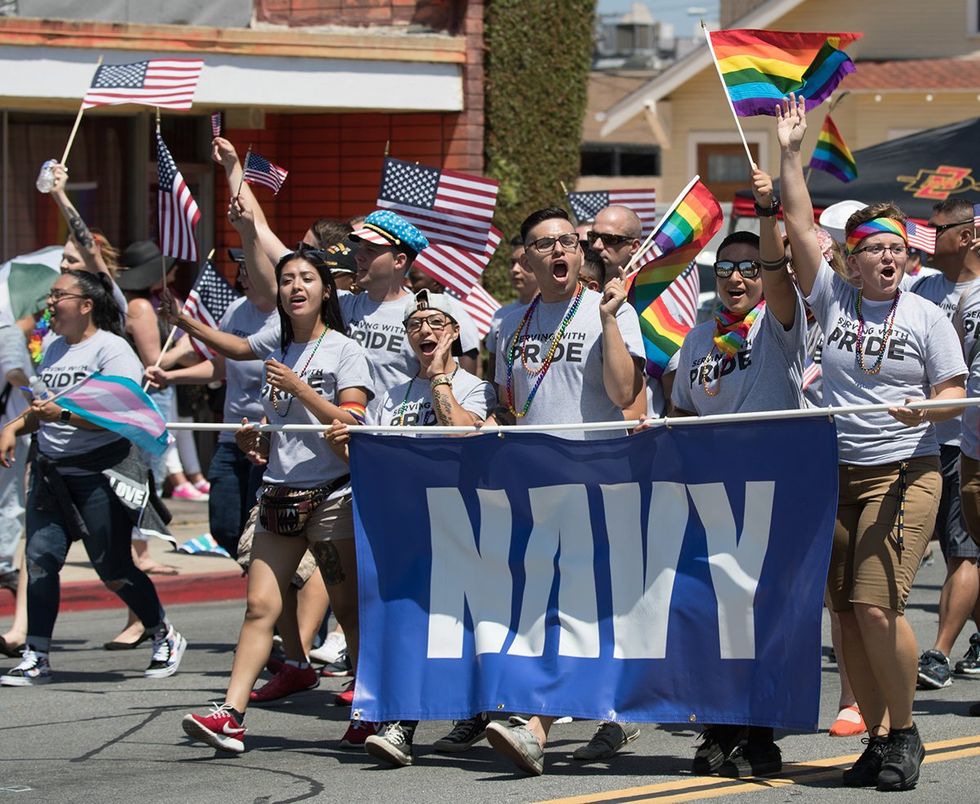A new report has cast stark attention on the myriad challenges faced by disabled veterans, including those who are LGBTQ+, transitioning to civilian life, highlighting critical gaps in accessibility and employer support that undermine these former military members’ efforts to thrive post-service.
The report, “Disabled Veterans and Employers: Moving From Surviving to Thriving,” illuminates the gaps between employer perceptions of support and disabled veterans’ actual needs.
The comprehensive study conducted by Easterseals and Voya Cares reveals critical insights into the plight of disabled veterans transitioning out of the military, demonstrating significant underemployment and systemic barriers to professional advancement. Many veterans report being employed in roles that do not utilize their full skill sets or provide enough hours to support themselves financially. The study also highlights profound mental health concerns, with many veterans hesitant to seek necessary support due to fear of stigma. Furthermore, there’s a noticeable gap between the support employers believe they are providing and the actual experiences of disabled veterans and their caregivers, pointing to a need for better-tailored and accessible resources.
 Shutterstock
Shutterstock
Easterseals CEO Kendra Davenport discussed the report in an interview with The Advocate. “Veterans with disabilities are more likely to be underemployed, which means they might be working jobs that do not fully utilize their skills, or they might not have enough work hours to support themselves adequately,” she said.
She highlighted the complexity of navigating Veterans Affairs benefits, a significant barrier for many veterans as they transition out of the military. “Easterseals helps veterans navigate that process and we help them integrate their VA benefits with Medicaid benefits, Medicare, and whatever they’re getting from an employee health plan,” she said. This assistance aims to ensure veterans receive the maximum benefits they earned through their service.
 Shutterstock
Shutterstock
Mental health emerged as another significant barrier identified in the study. Davenport emphasized the importance of mental health support for disabled veterans. “Disabled veterans recognize mental health as a top barrier to employment and indicate that mental health support and services are critical to their success at work,” she noted. Despite available employer support, many veterans are hesitant to access them due to stigma and privacy concerns.
The fear of discrimination remains a powerful deterrent for many veterans in disclosing their disabilities to employers. “They often feel if I say I have a mental health issue, I have a neurodiversity issue, I have PTSD, whatever it is, that that’s going to hold them back from advancing within the company or again, helping them avoid being underemployed,” Davenport said.
As fewer Americans have a direct connection to the military, the challenges and contributions of veterans and active-duty service members remain largely invisible to the general public. This lack of awareness can lead to significant gaps in understanding and support, complicating these individuals’ already difficult transitions when returning to civilian life. Davenport stressed the importance of bridging this gap.
 SHutterstock
SHutterstock
Only about 6 percent of U.S. adults were veterans in 2023, down from 18 percent in 1980, with active-duty personnel making up less than 1 percent of all U.S. adults, according to data from the Pew Research Center and the U.S. Census Bureau. This diminishing presence highlights a gap in understanding the challenges faced by those who serve.
“So few Americans really even know someone who’s been on active duty. … It strikes them as almost unbelievable, the weight of the responsibility that many people in the military bear,” Davenport said. This lack of connection affects not only perceptions but also the support systems necessary for veterans, especially as most people will either become disabled or care for someone who is disabled in their lifetime, making it essential to bridge this gap in awareness and empathy.
The VA estimates there are more than 1 million LGBTQ+ veterans in the United States.
 Shutterstock
Shutterstock
In 2023, Easterseals raised the alarm about accessibility issues as part of a policy visit on Capitol Hill. Representatives from Easterseals affiliates across the country came together in Washington, D.C., to promote awareness of the lack of accessibility in American life across government and business by speaking with members of Congress.
As Easterseals continues to advance its advocacy, it emphasizes the importance of collaboration and education to effectively support disabled veterans and ensure they receive the opportunities and respect they deserve.


 Shutterstock
Shutterstock Shutterstock
Shutterstock SHutterstock
SHutterstock Shutterstock
Shutterstock


































































Charlie Kirk DID say stoning gay people was the 'perfect law' — and these other heinous quotes